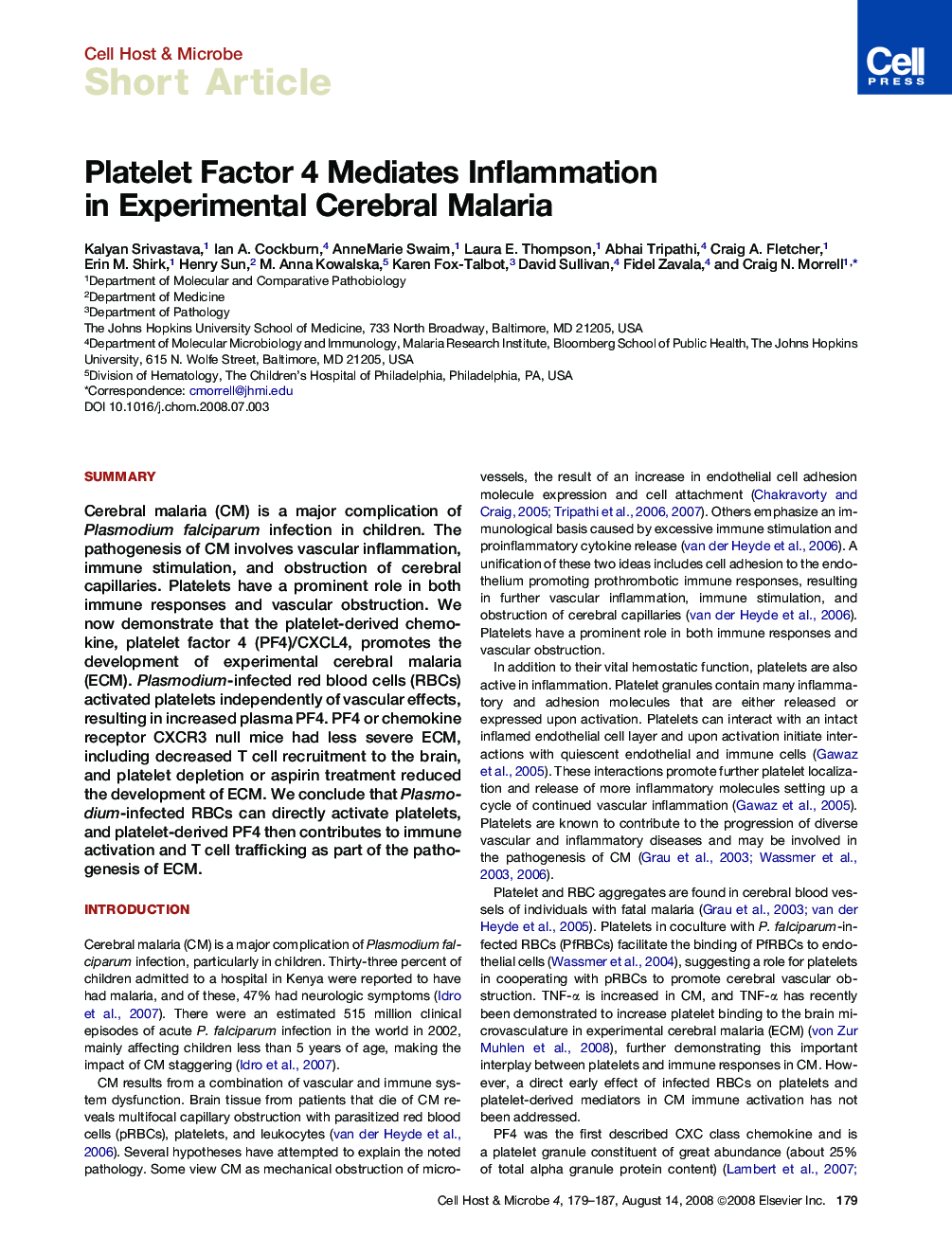| Article ID | Journal | Published Year | Pages | File Type |
|---|---|---|---|---|
| 4361424 | Cell Host & Microbe | 2008 | 9 Pages |
SummaryCerebral malaria (CM) is a major complication of Plasmodium falciparum infection in children. The pathogenesis of CM involves vascular inflammation, immune stimulation, and obstruction of cerebral capillaries. Platelets have a prominent role in both immune responses and vascular obstruction. We now demonstrate that the platelet-derived chemokine, platelet factor 4 (PF4)/CXCL4, promotes the development of experimental cerebral malaria (ECM). Plasmodium-infected red blood cells (RBCs) activated platelets independently of vascular effects, resulting in increased plasma PF4. PF4 or chemokine receptor CXCR3 null mice had less severe ECM, including decreased T cell recruitment to the brain, and platelet depletion or aspirin treatment reduced the development of ECM. We conclude that Plasmodium-infected RBCs can directly activate platelets, and platelet-derived PF4 then contributes to immune activation and T cell trafficking as part of the pathogenesis of ECM.
